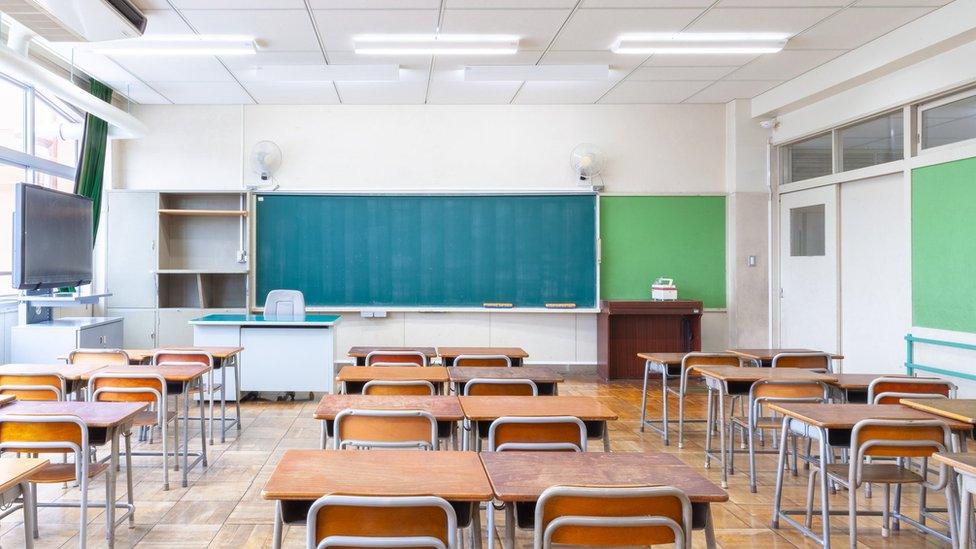Coronavirus: Plan for 'new normal' for post-16 learning
- Published
- comments

Students and apprentices may have to continue attending virtual classes online for "some time", the Welsh Government has said.
Students and apprentices have not had face-to-face teaching since the start of the coronavirus restrictions.
Now the Welsh Government has published a plan, external in a bid to get post-16 learners back to class.
While the plan has no dates, it states that there will need to be a "new normal for some time".
The three-point "resilience plan" sets out a phased return for over-16s to apprenticeships, colleges and universities.
Wales is currently in the "rescue stage" of the plan, involving moving teaching online and the cancellation of A-level exams.
It is hoped the review stage of the plan will see some learners return to classrooms later in the year.
But the plan says there is a likelihood of "further cycles of social distancing" and colleges and apprenticeship providers will need to adapt quickly to keep learning going.
It says a "blended" approach to learning will continue "for some time for many, if not all", and lecturers and course leaders will have to try new techniques for teaching during this.
While some students may resume face-to-face learning before the end of the summer term, many will not, and will not be back in the classroom until the start of the autumn term.
It sets out support for students, saying many will need "practical and emotional support to re-integrate" after prolonged isolation.

While some schools have remained open for the families of key workers, universities and colleges are closed
Some of the measures include:
Supporting students and learners re-starting face-to-face study having moved up a year and dealing with a "step up in demands"
Additional support for learners from Welsh-medium schools who do not speak Welsh at home in their transition to higher education
Support for apprentices who may have lost placements during the restrictions
Financial support for universities predicting a loss in income due to a forecast drop in admissions in September
Ms Williams said colleges, universities and training providers were facing "significant challenges"."The current 'rescue' phase is focused on ensuring education providers have immediate security of funding and arrangements for learning in place this academic year," she said.

Kirsty Williams announced the three point plan at the Welsh Government's daily press conference
What are the three stages?
Rescue (March - June 2020) - Making sure providers have security of funding and immediate arrangements for continuity of learning are in place.
Review (May - September 2020) - Planning for potential changes to provision, funding and learning delivery for Autumn 2020 and beyond.
Renew (September 2020 - March 2021) - Putting revised arrangements in place for the academic year 2020/21 and evaluating the impacts of Covid-19.
- Published12 April 2020

- Published18 May 2020
